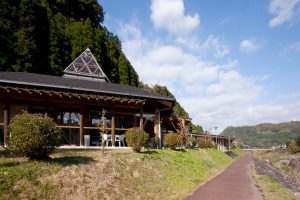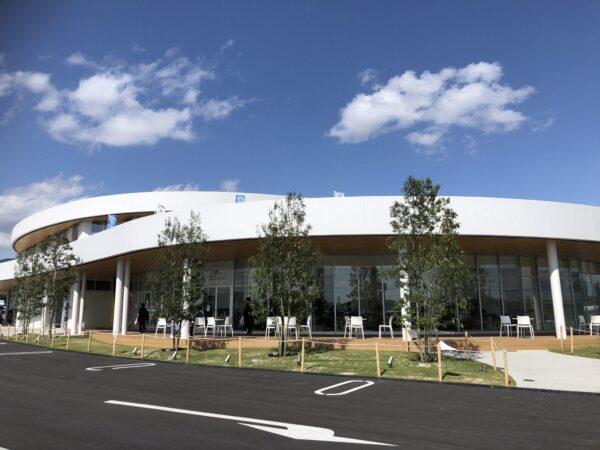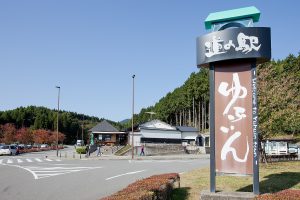Roadside Station Kaharu
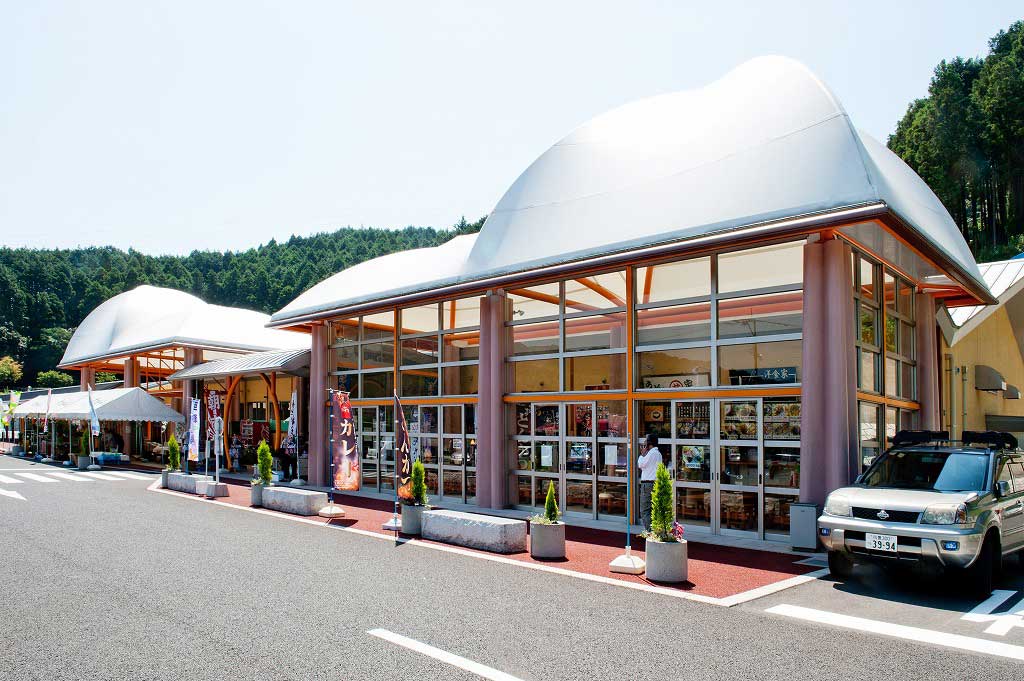
Index
The comfort of our home even during the journey
An oasis for travelers since the Manyo period?
The name of the product hall is "Wagie no Sato" (Village of Wagie). Wagie" is an old word from the Nara and Heian periods meaning "home. In the past, Kaharu was on the Dazai government road from the capital to Dazaifu, and there was an inn station for the government road. In the Manyoshu anthology, there is a waka poem, "Kaharu seems like my home. The station's produce stand overlooking Mt. Kaharudake, the symbol of the Chikuho Coal Mine, is filled with seasonal vegetables such as carrots, sweet potatoes, and bamboo shoots. The station also offers a wide variety of sweets such as pudding, as the area prospered from coal mining, and boxed lunches are also available. Moreover, they are reasonably priced!
Recommendations for Michi-no-Eki Kaharu
point

Buy this Lunch Box
One of the most popular and prized products at Michi-no-Eki Kaharu is its boxed lunches! Seven bento vendors ship their products to the station, offering a wide variety and reasonable prices in this day and age. Among them, the stationmaster's favorites are the "makunouchi bento" and "wagie bento" from Kahori Kobo, a processing plant directly operated by the station. The "makunouchi bento," which includes seven kinds of side dishes such as simmered dishes, grilled dishes, vinegared dishes, and salads, is priced at 450 yen (486 yen including tax), and the "wagie bento," which includes three kinds of rice and eight or nine kinds of side dishes in a nine-masu box, is priced at 500 yen (540 yen including tax). The handmade taste also makes one's cheeks loose a little bit. Kahori Kobo also makes five other types of bento, including karaage bento, every day except Thursdays. Other vendors also compete in flavor with their own bentos, such as curry with pork cutlet, mapo tofu bowl, katsu-don (pork cutlet bowl), and yakiudon (fried noodles). Of course, they are inexpensive. Buyers can enjoy choosing which one they want today.
point

Local specialty: dried persimmons
In the old days, copper mining was carried out in the Minadosho district, where the temperatures varied greatly and the valley winds blew, making dried persimmons a popular product. Dried persimmons made from "hagakushi" persimmons native to Fukuoka are dried using a unique process called "ama-boshi persimmon" (dried persimmon with a sugar content of 30 degrees or higher). The round, beautifully shaped, colorful, and elegant taste makes them a rare and precious delicacy.
point

To enjoy in the vicinity: Zelkova Station and Zelkova Bridge
Both were built during the former "Kokura Railway" era and are designated as part of the Hita Hikosan Line Railway Heritage Group. The former Kokura Railway Station was opened in 1915. It is the only one of the former Kokura Railway stations that still exists, and its ceiling and other parts are decorated in Taisho Modernism. The Zelkova Bridge was constructed by a method known as "torsion mampo," in which bricks are stacked diagonally, and it is said that there are only 30 bridges in Japan with this construction method.
Roadside Station Kaharu Basic Information
| Location | 1870-1 Kagamiyama, Kaharu-cho, Tagawa-gun, Fukuoka |
|---|---|
| Phone number | 0947-32-8727 |
| Business Hours | 9:00-18:00 Restaurant 9:00-17:00 |
| Access | 40 minutes from Kokura Minami IC of Kyushu Expressway |
| Official HP | https://michinoeki-kawara.jp/ |
Map of Roadside Station Kaharu
Gourmet Information of Roadside Station Kaharu
Buy this Lunch Box
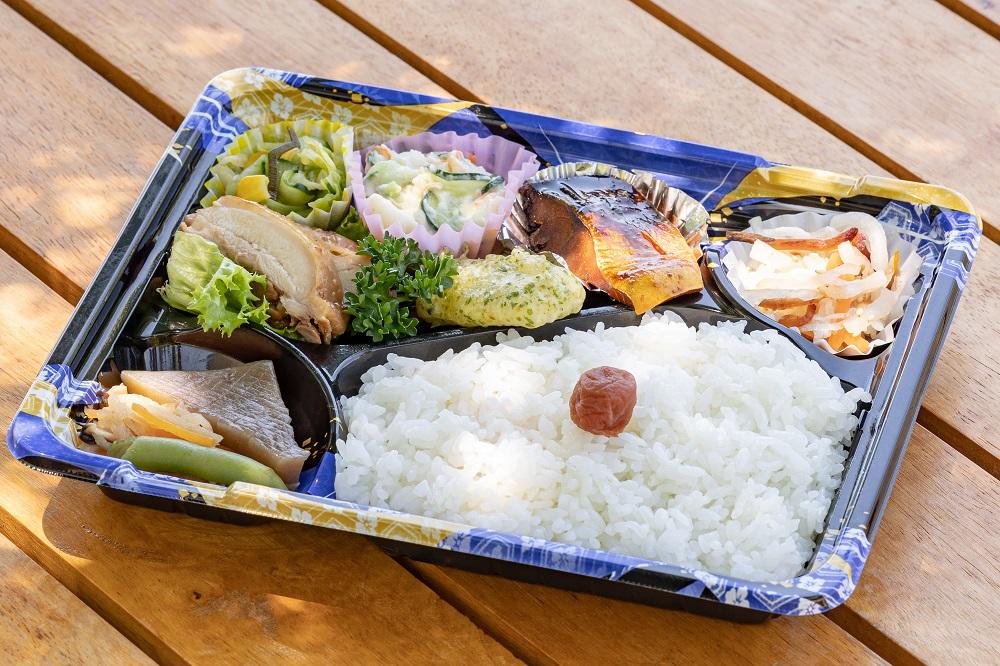
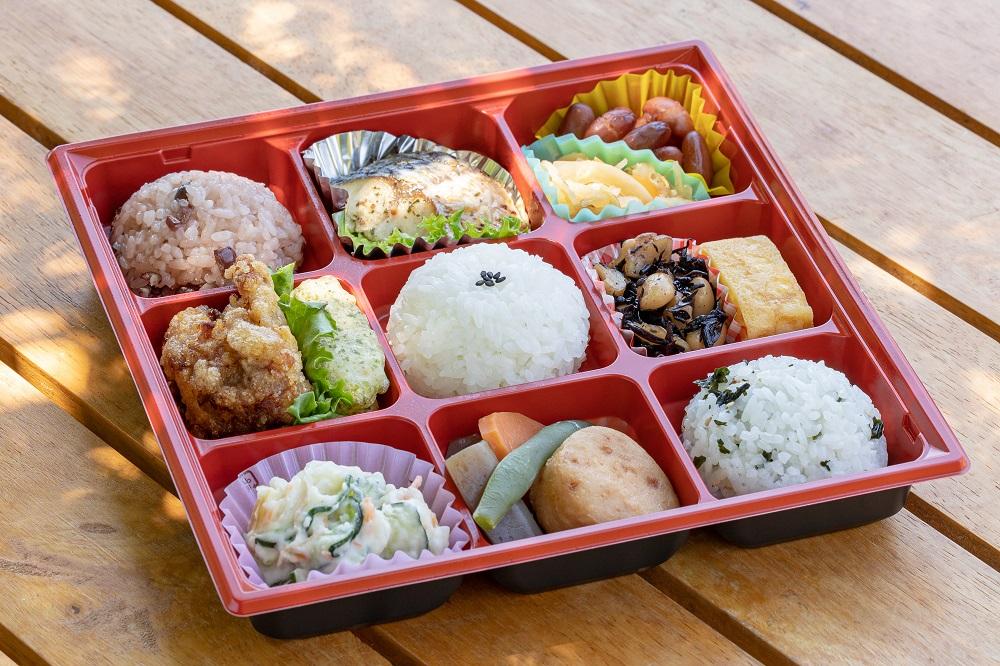
One of the most popular and prized products at Michi-no-Eki Kaharu is its boxed lunches! Seven bento vendors ship their products to the station, offering a wide variety and reasonable prices in this day and age. Among them, the stationmaster's favorites are the "makunouchi bento" and "wagie bento" from Kahori Kobo, a processing plant directly operated by the station. The "makunouchi bento," which includes seven kinds of side dishes such as simmered dishes, grilled dishes, vinegared dishes, and salads, is priced at 450 yen (486 yen including tax), and the "wagie bento," which includes three kinds of rice and eight or nine kinds of side dishes in a nine-masu box, is priced at 500 yen (540 yen including tax). The handmade taste also makes one's cheeks loose a little bit. Kahori Kobo also makes five other types of bento, including karaage bento, every day except Thursdays. Other vendors also compete in flavor with their own bentos, such as curry with pork cutlet, mapo tofu bowl, katsu-don (pork cutlet bowl), and yakiudon (fried noodles). Of course, they are inexpensive. Buyers can enjoy choosing which one they want today.
Local specialty: dried persimmons
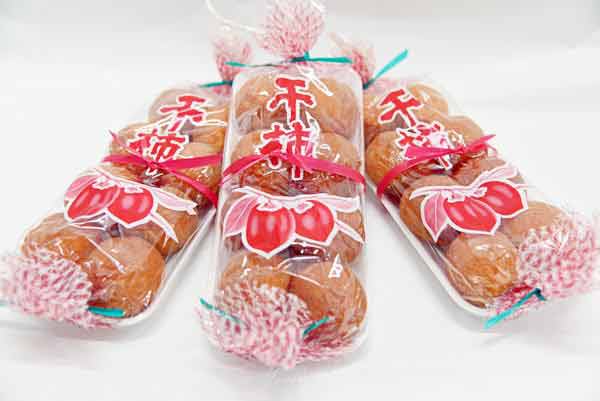
In the old days, copper mining was carried out in the Minadosho district, where the temperatures varied greatly and the valley winds blew, making dried persimmons a popular product. Dried persimmons made from "hagakushi" persimmons native to Fukuoka are dried using a unique process called "ama-boshi persimmon" (dried persimmon with a sugar content of 30 degrees or higher). The round, beautifully shaped, colorful, and elegant taste makes them a rare and precious delicacy.
Around Roadside Station Kaharu
To enjoy in the vicinity: Zelkova Station and Zelkova Bridge
If you want to have fun in the area
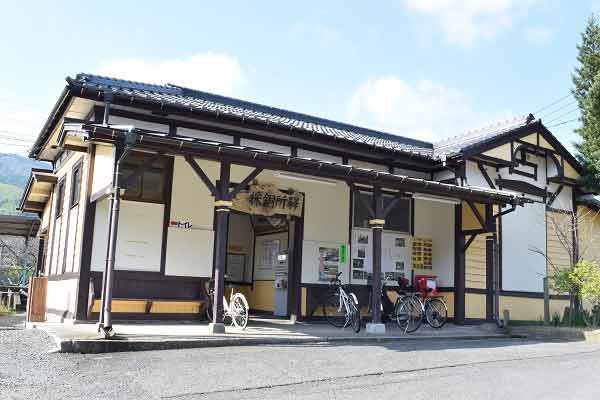
Both were built during the former "Kokura Railway" era and are designated as part of the Hita Hikosan Line Railway Heritage Group. The former Kokura Railway Station was opened in 1915. It is the only one of the former Kokura Railway stations that still exists, and its ceiling and other parts are decorated in Taisho Modernism. The Zelkova Bridge was constructed by a method known as "torsion mampo," in which bricks are stacked diagonally, and it is said that there are only 30 bridges in Japan with this construction method.

